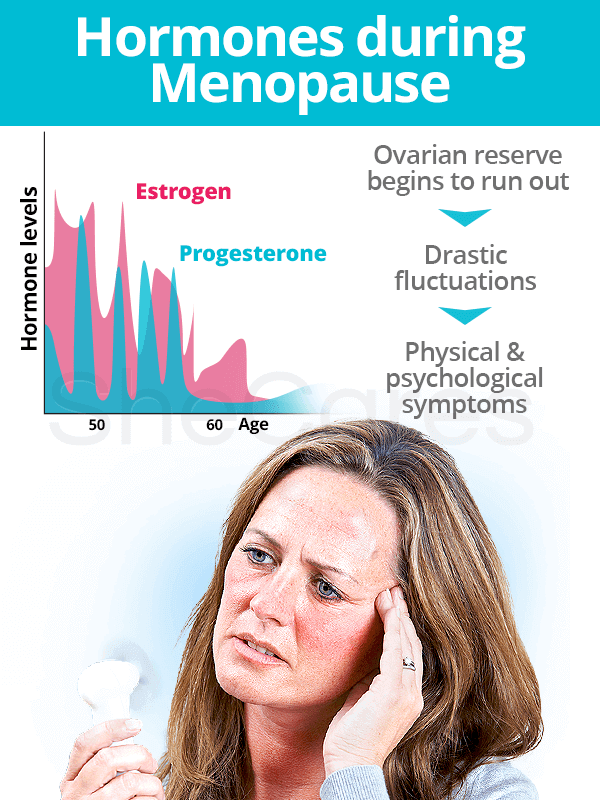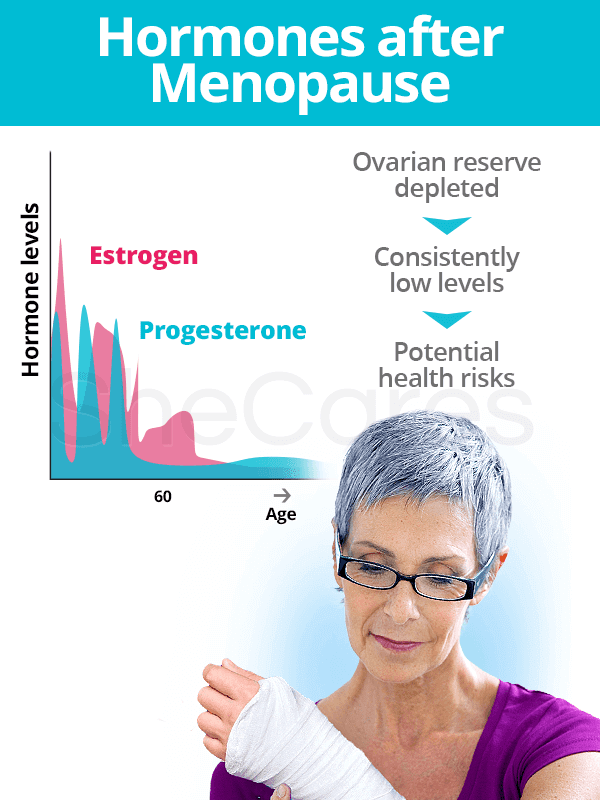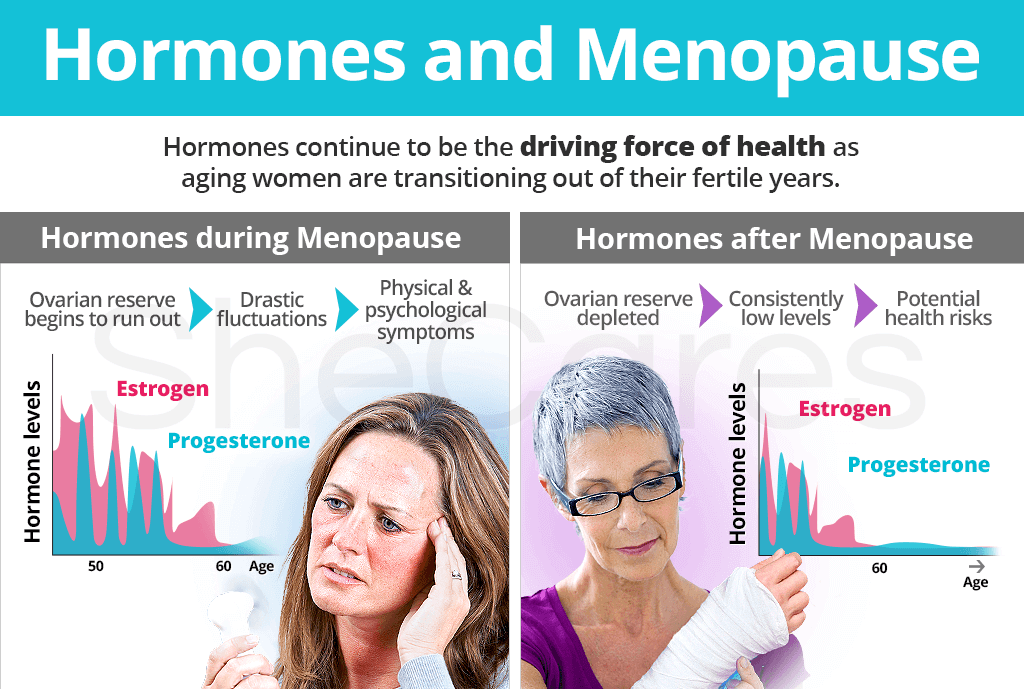Reproductive hormones take center stage when discussing the relationship between hormones and menopause. While they make up just a portion of the over 200 hormones and hormone-like substances in the body, their impact is felt the most when women are about to end their fertile years.1
Continue reading to learn more about reproductive hormones and menopause, including what hormonal changes take place in middle-aged women, what this means for female health, and what can be done for symptom relief.
Hormones during Menopause

Colloquially referred to as menopause, perimenopause is the transitional period leading up to menopause, a date in time defined as the conclusion of fertile years in women.
During perimenopause, a woman's ovarian reserve - lifetime supply of eggs - begins to run out. Because the ovaries are the principal producers of key reproductive hormones, such as estrogen and progesterone, this evokes drastic hormonal fluctuations that often lead to lower hormone levels.
As a result of the variations in hormonal levels, women can suffer from numerous symptoms, such as hot flashes, night sweats, vaginal dryness, mood swings, loss of libido, and many others.
If the hormonal imbalance is not treated, these symptoms can become severe enough to disrupt day-to-day life and sleeping patterns.
Then, once a woman's reserve has ran out of eggs, and she has not had a menstrual cycle for 12 consecutive months, she has reached menopause. The average age of menopause in the United States is 51.2
Hormones after Menopause

After menopause, hormones reach consistently low levels, presenting more serious health complications - osteoporosis, dyspareunia, incontinence, heart disease, etc. - if not treated promptly.
Prior symptoms from perimenopause can also continue. As a matter of fact, it is not uncommon for hot flashes and night sweats to persist for over 11 years between perimenopause and postmenopause.3
In sum, it is recommended that peri- and postmenopausal women treat the underlying hormonal imbalance at fault for their harrying symptoms, which will also ultimately prevent the onset of more serious disorders later on in life.
Treatment of Hormonal Changes in Menopause
For decades, conventional medicine for hormonal imbalance - such as hormone replacement therapy (HRT) - was recommended to middle-aged women fighting the effects of their fluctuating or low hormones during the menopause transition.
However, current studies have proven its association with an increased risk of breast cancer far after its discontinuation, leading women to search for more natural options for ultimate relief.4
In comes natural and effective hormonal imbalance treatments that combine a holistic approach of lifestyle changes paired with alternative medicine traditionally proven to promote long-lasting endocrine health. Click on the previous link to get started with your well-deserved health transformation!
Sources
- Harvard Health Publishing. (2018). Perimenopause: Rocky road to menopause. Retrieved December 18, 2019, from https://www.health.harvard.edu/womens-health/perimenopause-rocky-road-to-menopause
- The North American Menopause Society. (n.d.). Changes in Hormone Levels. Retrieved December 18, 2019, from https://www.menopause.org/for-women/sexual-health-menopause-online/changes-at-midlife/changes-in-hormone-levels
- Society for Endocrinology. (2019). Menopause. Retrieved December 18, 2019, from https://www.yourhormones.info/endocrine-conditions/menopause/
- Women's Health Concern. (2017). The menopause. Retrieved December 18, 2019, from https://www.womens-health-concern.org/help-and-advice/factsheets/menopause/
Footnotes:
- The Pituitary Foundation. (n.d.). Your hormones. Retrieved December 19, 2019, from https://www.pituitary.org.uk/information/hormones/
- Mayo Clinic. (2017). Menopause: Symptoms & causes. Retrieved December 18, 2019, from https://www.mayoclinic.org/diseases-conditions/menopause/symptoms-causes/syc-20353397
- Harvard Health Publishing. (2015). Menopause-related hot flashes and night sweats can last for years. Retrieved December 18, 2019, from https://www.health.harvard.edu/blog/menopause-related-hot-flashes-night-sweats-can-last-years-201502237745
- The Lancet. (2019). Type and timing of menopausal hormone therapy and breast cancer risk: individual participant meta-analysis of the worldwide epidemiological evidence. Retrieved December 18, 2019 from https://www.thelancet.com/journals/lancet/article/PIIS0140-6736(19)31709-X/fulltext



